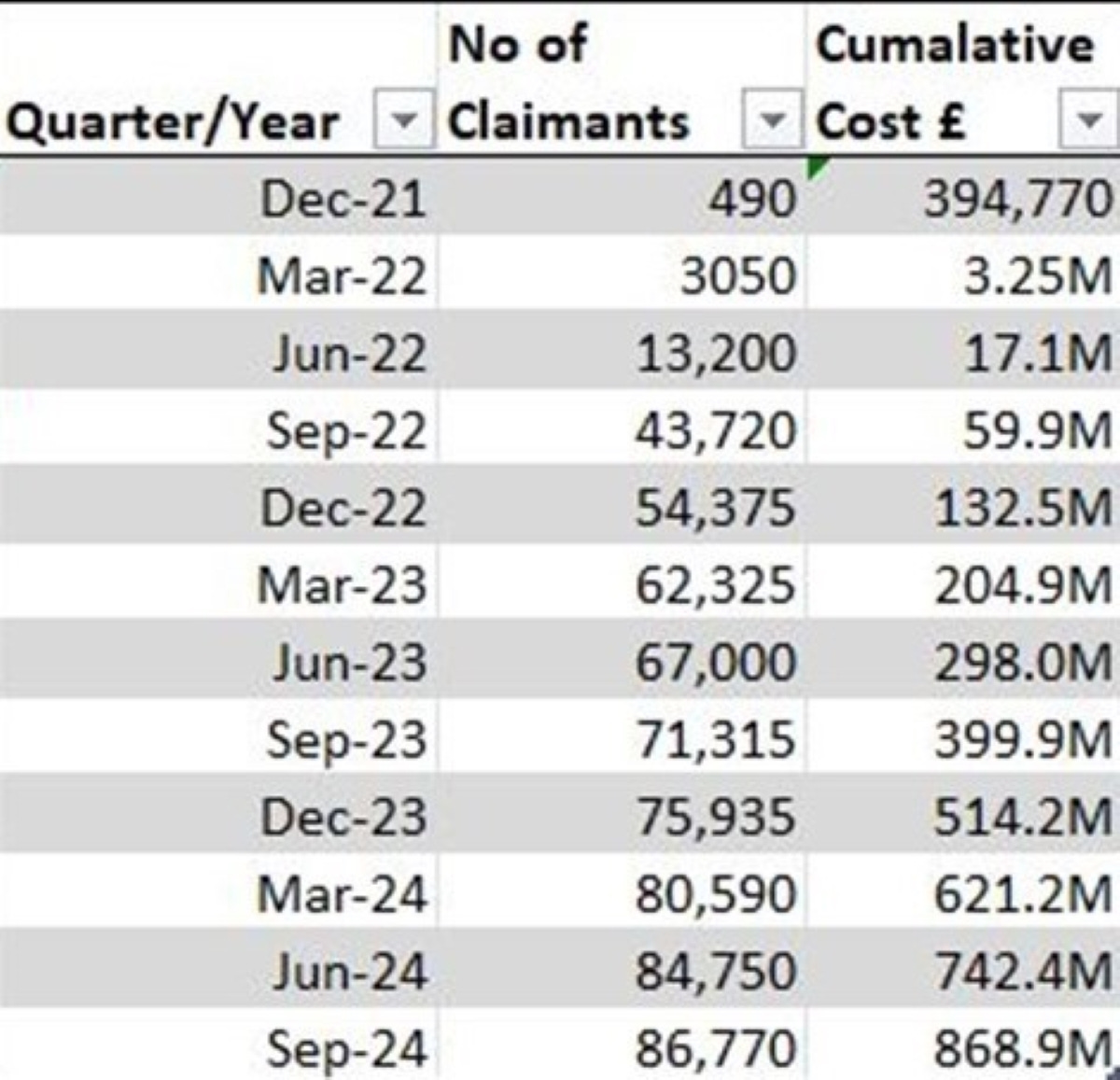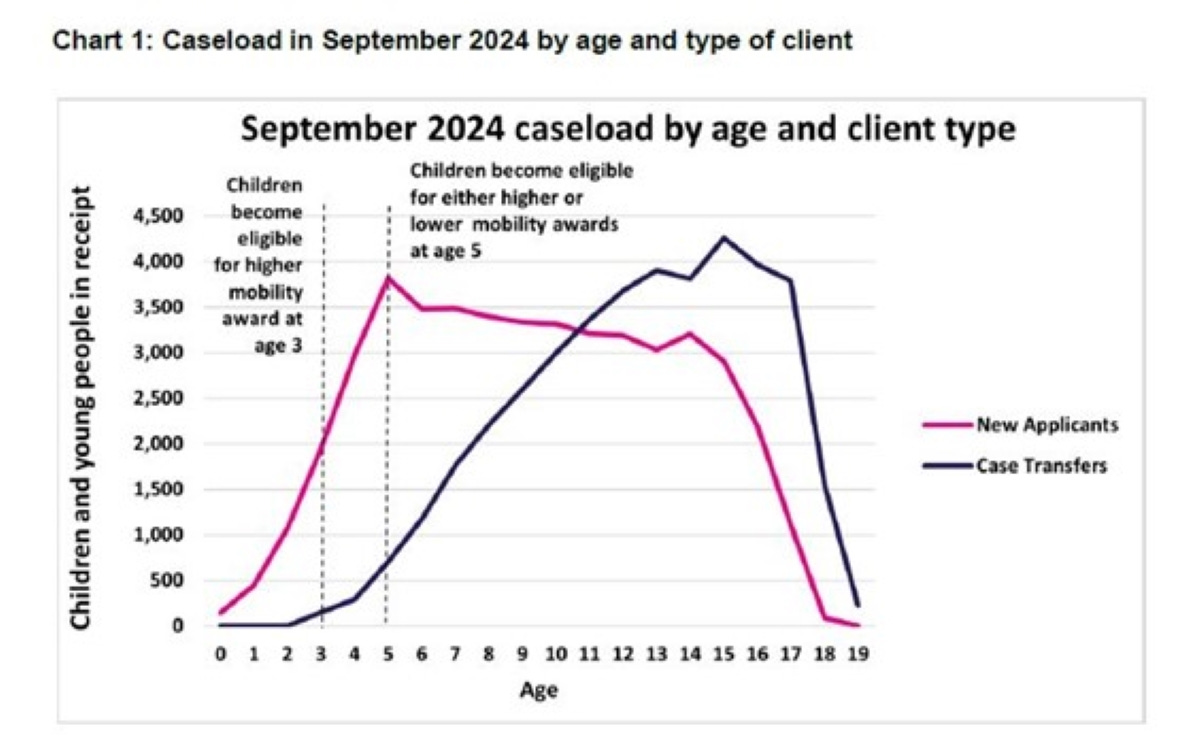Scottish Union for Education – Newsletter No 98
Themes: education in the news, Labour’s curriculum reform, and the demand for additional support
PLEASE SUPPORT OUR WORK by donating to SUE. Click on the link to donate or subscribe, or ‘buy us a coffee’. All our work is based on donations from supporters.
Education featured quite heavily in the news over the Christmas and new year holiday. At the end of 2024 the Telegraph carried a story about the ‘terms of reference’ for Labour’s new curriculum review for English education. The article reported on the input from teaching unions and educational lobby groups. We are already very sensitive to the fact that the chair of the review body, Professor Becky Francis, is an academic who once criticised Tony Blair’s government for its ‘obsession with academic achievement’.
On the first day of 2025, the Scotsman revealed that despite publicly supporting Labour’s policy to charge VAT on private or independent schools, the Scottish government had written to the Westminster government pleading special cases on behalf of the Scottish private education sector. Labour refused to make an exception for grant-aided special schools in Scotland. We wait to see what the unforeseen consequences of the VAT policy will be, but what is clear is that the Scottish government is not prepared to engage in a public discussion about education policy in Scotland.
One other big story that has been running throughout the holidays is the decline in pupil attendance and the exponential rise in the number of students reported to need additional support. This is an issue that Julie Sandilands has been following closely over the past year, so when the report came out in December, she took a close look at the statistics. This week, The Scotsman’s Calum Ross reported that the gap between the number of pupils requiring additional support had doubled over the past decade. We have reached a point where over 40% of children in education have additional support needs. This should raise serious alarm bells about the basic quality of education. However, the tendency is to complain that the resources are not available to meet the Scottish government’s commitment to provide children with care plans that meet these children’s needs.
If 44% of children need additional support, then the system is clearly failing and we need to ask some serious questions about teacher training. Are young teachers being trained to ensure that a classroom can accommodate a range of capabilities? Are we properly assessing children at primary school? Are we taking enough care over the basic literacy and numeracy skills of children before they progress to secondary school? Is there a tendency to medicalise by adopting a therapeutic label to describe educational failings? Most important of all, have we become so instrumental in our approach to learning that we can no longer inspire most children to take their education seriously? Bridget Phillipson, the Westminster government’s education minister, wants England to follow a path already taken by the Scottish government with its Curriculum for Excellence and the politicisation that followed in its wake.
In 2025, we will be exposing the failings of education policy and practice in Scotland, in the hope that we can return to higher standards and further prevent the indoctrination of our children. Please support us in any way you can – your financial support is needed and appreciated. We will let you know about our 2025 campaigns in the next few weeks.
If you have any stories about Scottish education that you want to see discussed in public, please contact the editors at info@sue.scot.
SUE’s online Parent and Supporters Group meetings are held monthly. Anyone wanting to attend should email SUE’s Parent and Supporters Group at psg@sue.scot.
The never-ending demand for additional support
Julie Sandilands is an English and business teacher who worked in several secondary schools in Fife until 2017. She is SUE’s education policy correspondent.
For several years I have been paying close attention to the escalating number of children in Scotland’s schools who are recorded as having an additional support need (ASN) and/or are claiming Child Disability Payment. The growing number of children categorised in this way has implications for both budgets and discipline in and out of education settings. Unlike some commentators, rather than bemoaning the lack of resources to cope with this situation – which is unsustainable in every way – I asked a series of pertinent questions here and then again here about the possible reasons behind this increase. Responses to these questions might help to slow or even reverse this upward trend because, as I previously stated, if it continues, in a matter of a few more years Scotland might find itself in the embarrassing position of having to explain to its people, the rest of the UK, and the world, why 50% of pupils in Scottish schools are labelled as having an ASN. This is my third update.
The latest data shows that 284,448 children are now registered with an ASN. They represent 40.5% of all pupils (702,428).
This increase is also reflected in the number of children claiming Child Disability Payment, the replacement for Disability Living Allowance, which was previously delivered by the Department for Work and Pensions. Initially it was launched in three pilot areas in Scotland on 26 July 2021, opening to all applicants nationwide on 22 November 2021, with case transfers from the Disability Living Allowance scheme beginning in mid October 2021. The table below shows the quarter-by-quarter cumulative cost to the taxpayer, which looks likely to hit the one £bn mark in December 2024. Yes, you read that correctly: one billion!
Of the 86,770 claimants in September 2024, 46,345 (53%) were authorised new applicants (£350.5 million), with the remainder being case transfers (£518.4 million).
The most common category of condition was mental and behavioural disorders, which accounted for 74% of the caseload (64,500 – 22.7%) of all pupils registered with an ASN in 2024). One of the more worrying aspects, and one which warrants an immediate investigation, is the significant rise of applicants in the younger age groups.
One possible factor behind this rise was reported during the Scottish Covid 19 Inquiry focusing on the impact on children and education. As part of his evidence, Glenn Carter, head of the Scotland office of the Royal College of Speech and Language Therapists reported (2:10) on the increased need for speech and language therapy for Scotland’s young children and infants post lockdown. He commented that there are ‘children coming to school who have very little language, if any’, and that this increase had led to longer waiting times, with 6727 children waiting for speech and language therapy in May 2024 – the highest number ever recorded. In his witness statement, he describes feedback from membership surveys noting deteriorating mental health and an increase in challenging behaviours, and in paragraph 28 he states, ‘The evidence base is emerging because the research is ongoing and obviously that cohort of children is continuing to grow up. Therefore, by definition, we simply do not yet know what the medium- and long-term impacts may be’.
What we do know, however, is that mental health issues, including prescriptions for selective serotonin reuptake inhibitors in under 16s have skyrocketed, and once children are in the benefit system there is a very strong possibility that not only will they will remain there, but then be transferred onto the adult equivalent, resulting in a life of state dependency. The growing number of pupils in a classroom who are registered as having an ASN undermines those with genuine special needs, ultimately taking away crucial support for learning, with resources diverted to managing persistent disruptive behaviour, including an alarming rise in violent incidents.
Further thoughts on deteriorating behaviour in schools were supplied by Mr Jim Thewliss, General Secretary of School Leaders Scotland, who retired in August 2023. In his witness statement (paragraph 49) to the Covid 19 Enquiry he wrote: ‘Scotland now has a cohort of young people who have not experienced normal schooling e.g., early years; primary, secondary, further, and higher education, and all the various transition points. All children and young people whose education and social development was interrupted were definitely impacted. The behaviour they are exhibiting within the system is now starting to affect the system itself and this is a much longer-term, insidious harm that will continue if the level of resource going into the system is not enough to sustain what would have been normal.’
It is important to remember that the decisions taken during this time were nothing more than political, with the devolved governments in Wales and Scotland implementing measures that were more draconian than those in England, in terms of both nature and length. No impact assessments were carried out beforehand, and any dissenting voices raising legitimate concerns were either ignored or silenced. Although the number of children assigned an ASN was rising year by year before 2020, there is no doubt that withdrawing access to schools, nurseries and key health services exacerbated an already concerning situation. Children, it would seem, are merely collateral damage when it comes evidence free policies, be in public health or education. Damage that may ultimately be irreversible.
Implications for the economy are also noteworthy, as Scottish government data for public expenditure for 2023/24 shows that the total cost of social protection will be just short of £33 billion, with social security benefits expected to increase from £5.3 billion in 2023/24 to £8.0 billion in 2028/29.
And the cost of total public expenditure (£111.2 billion) in 2023/24 per head.
Again, this situation is unsustainable, and in an economy with modest growth, a sustained drop in the birthrate since 2015, an ageing population, an increased public sector and a growing number of economically inactive working age people. Any economist worth their salt should be asking what percentage of the taxpaying population (wealth creators) pay into the system from the private sector without actually taking a single penny back out? In the meantime, regarding the increasing number of children registered as having an ASN, perhaps, rather than simply pouring more and more resources into an ever-moving end point, the time really has come to look more closely at the starting point and ask some of those pertinent questions that might help to avoid a crisis in the classroom, communities and the economy.
News round-up
A selection of the main stories with relevance to Scottish education in the press in recent weeks, by Simon Knight.
https://www.heraldscotland.com/news/24787608.eis-underinvestment-asn-affecting-teachers-students/?ref=ebln&nid=1220&block=article_block_a&u=3113c1b3a77b3e25e409aaa02c22166f&date=121224 Garrett Stell, EIS: 'Underinvestment' in ASN affecting teachers, students. 12/12/24
https://www.heraldscotland.com/news/24793204.learned-shone-light-asn-schools/?ref=ebln&nid=1220&block=article_block_a&u=3113c1b3a77b3e25e409aaa02c22166f&date=151224 Garrett Stell, Rebecca McCurdy, James McEnaney, What we learned as we shone a light on ASN in schools. 15/12/24
https://www.spiked-online.com/2024/12/14/making-education-relevant-fails-working-class-kids/?fbclid=IwZXh0bgNhZW0CMTEAAR3FiHhGBXFhTgvu64amHIEf0himhPcq8bJW4F2O8EVNF7CQisDAkhh6bi8_aem_Rcw0BD-WVOrjmgtSKzlmwQ Neil Davenport, Making education ‘relevant’ fails working-class kids. Education should challenge young people – not patronise them. 14/12/24
https://archive.is/ePMTg Celia Walden, Anti-perfection’ classes are a mistake. Schools should not be promoting mediocrity. A girls’ school in London is teaching pupils to embrace ‘good enough’ – but young minds should be aiming for more than ‘realistic goals’. 16/12/24
https://archive.is/7RKfj Chris Smyth, Blair: Prosecute parents if they fail to tackle pupils’ bad behaviour at school. The former prime minister’s think tank has advised the government to take a harder line in order to improve school outcomes. 20/12/24
https://www.compactmag.com/email/02389c76-efd3-4ebd-8b5e-afa270becca1/?ref=compact-newsletter Stephen Adubato, Behind the Teacher Exodus. 30/12/24
https://www.thetimes.com/article/94e7e52d-5819-4def-aa82-f358f1f1041b?shareToken=6797ca411508dc2238278b3be788713b Oliver Wright, Make lessons fun to keep children in school, ministers told. Critics claim that changes introduced by Michael Gove are causing more pupils to disengage from education, fuelling suspensions and exclusions. 31/12/24
https://www.thetimes.com/article/5a939c7a-c9f9-402d-8247-42a43f3e1119?shareToken=ba19f992bc66bb06164ae132224dd426 James Kirkup, Silence is deafening on Covid school closures. Lockdowns may have been unavoidable but it is now clear that keeping children at home had disastrous consequences. 01/01/25
https://www.spiked-online.com/2025/01/02/bridget-phillipson-is-vandalising-education/?fbclid=IwZXh0bgNhZW0CMTEAAR1YX4QS4T40SZ7jIx4UW21NO_DdAciyhZluc-Y3E_xIamMQN55C35WSRdg_aem_z2rqWJ943UH65mHF3KcSXA Joanna Williams, Bridget Phillipson is vandalising education. Labour wants to indoctrinate kids with identitarian dogma. 02/01/25
Thanks for reading the SUE Newsletter.
Please visit our Substack
Please join the union and get in touch with our organisers.
Email us at info@sue.scot
Contact SUEs Parents and Supporters Group at psg@sue.scot
Follow SUE on X (FKA Twitter)
Please pass this newsletter on to your friends, family and workmates.








